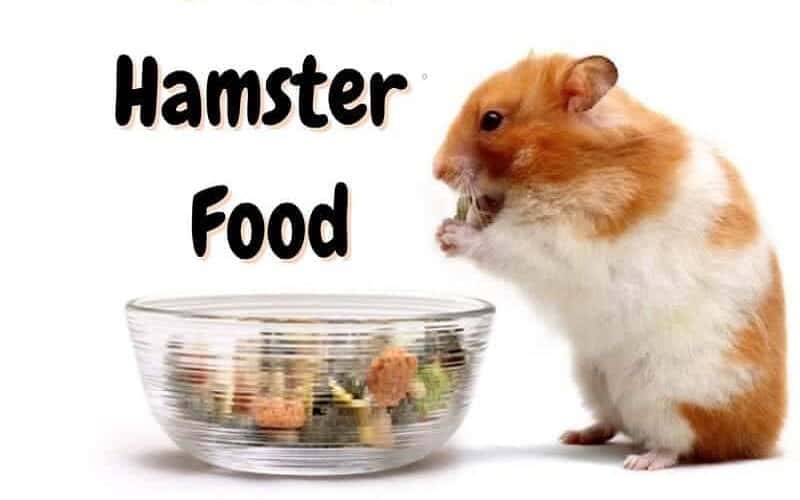Hamsters make excellent pets because they are small, have cute faces, and enjoy playing; however, what is the best hamster food? As responsible hamster owners, we must prioritize their health and happiness. Making sure they get the right food to meet their nutritional needs is an important part of caring for them. This comprehensive guide examines the best hamster foods.
It explains what they should eat, compares commercial and natural foods, and provides recommendations for a balanced and healthy diet. You can help your hamster grow and live a long, happy, and healthy life by knowing what they need to eat and making wise food choices.
Understanding Hamster Nutritional Needs
To ensure that your hamster gets the best food, you must first understand what they require. We begin by discussing what they eat in the wild, which includes grains, seeds, insects, and occasionally fruits and vegetables. Knowing what they eat in the wild allows us to feed them similarly in captivity, which is beneficial to their overall health.
We go into detail about what domesticated hamsters require in terms of protein, carbs, fats, vitamins, and minerals. We also discuss common dietary mistakes to avoid in order to provide a well-balanced diet for your hamster.
Hamster Food & Market Options for Hamster Food
There are numerous types of commercial hamster food on the market, each with its own set of features and benefits. This section discusses various types of commercial hamster food, such as pellets, seed mixes, and formulas with added vitamins and minerals.
When judging the nutritional value of hamster food, we discuss how important it is to consider the protein content, quality of ingredients, and supplements added. In addition, we provide brand recommendations and product reviews to assist you in selecting the best commercial hamster food.
Natural foods or foods made at home
Commercial hamster food is widely available and provides a well-balanced diet, but adding natural foods can add variety and nutrients.
We discuss the safe fruits, vegetables, and herbs that hamsters can consume, as well as their nutritional value and how much they should consume. In addition, we discuss making homemade treats for hamsters and provide simple recipes for making healthy snacks for your furry friend.
Hamsters require a protein source.
Protein is an essential component of a hamster's diet because it aids in their growth, development, and overall health. In this section, we discuss how important it is for them to consume protein-rich foods. We discuss good protein sources for hamsters, such as lean meats, beans, and hamster-specific supplements.
We also discuss things to consider when feeding insects or animal-based protein to ensure that your hamster gets the protein it requires in a safe and responsible manner.
Feeding guidelines and portion control
Set up proper feeding rules and practice portion control to keep your hamster healthy and avoid problems like obesity. We recommend a feeding schedule based on how they normally eat and what they need to eat.
It is discussed how to control the amount of food your hamster receives so that it does not consume too much. We also tell you how much water your hamster needs and how to keep it properly hydrated.
Special Diet Considerations
Hamsters, like humans, may need to adjust their diet based on their health or stage of life. In this section, we discuss food options for hamsters with specific health issues, such as diabetes or tooth problems, to ensure their specific needs are met.
We also provide guidance on what to feed hamsters when they are pregnant or nursing, as their nutritional requirements change during these times. We also discuss how to change a senior hamster's diet to keep them healthy while taking their age into account.
Trying new foods and making dietary changes
Introducing new foods to your hamster's diet should be done gradually and carefully. We discuss how to introduce new foods and why it's important to do so gradually while also monitoring how they react to new ingredients.
We also advise on how to transition from one type of food to another without causing digestive problems or stress. To keep your hamster healthy and happy, you must monitor their diet and adjust it based on their reactions.
Most foods should be avoided.
Many of the foods that hamsters eat are safe and healthy for them, but others can harm or even kill them. This section contains a comprehensive list of foods to avoid, including those that are poisonous, can cause choking, or may cause allergies or sensitivity.
You can keep your hamster safe and prevent health problems by being aware of these items and keeping them out of reach of your hamster.
Frequently Asked Questions About Hamster Food
This section addresses frequently asked questions and concerns about feeding a hamster. We respond to frequently asked questions. We discuss specific dietary needs, tasty treats, and dietary preferences. By dispelling common myths about hamster nutrition, we hope to provide you with a complete picture of what they require.
Conclusion
Finally, your hamster's health and well-being are dependent on a balanced and healthy diet. You can ensure that your pet receives the best nutrition possible by understanding what they require, comparing commercial and natural food options, and adhering to proper feeding guidelines.
However, keep in mind that each hamster is unique, so it's always best to consult with a vet for personalized advice on what to feed your hamster. If you feed your hamster properly, it will live a happy and healthy life, bringing joy and company to your home.
source https://hamstercaretipsblog.blogspot.com/2023/07/best-hamsters-food-10-things-you-should.html


إرسال تعليق